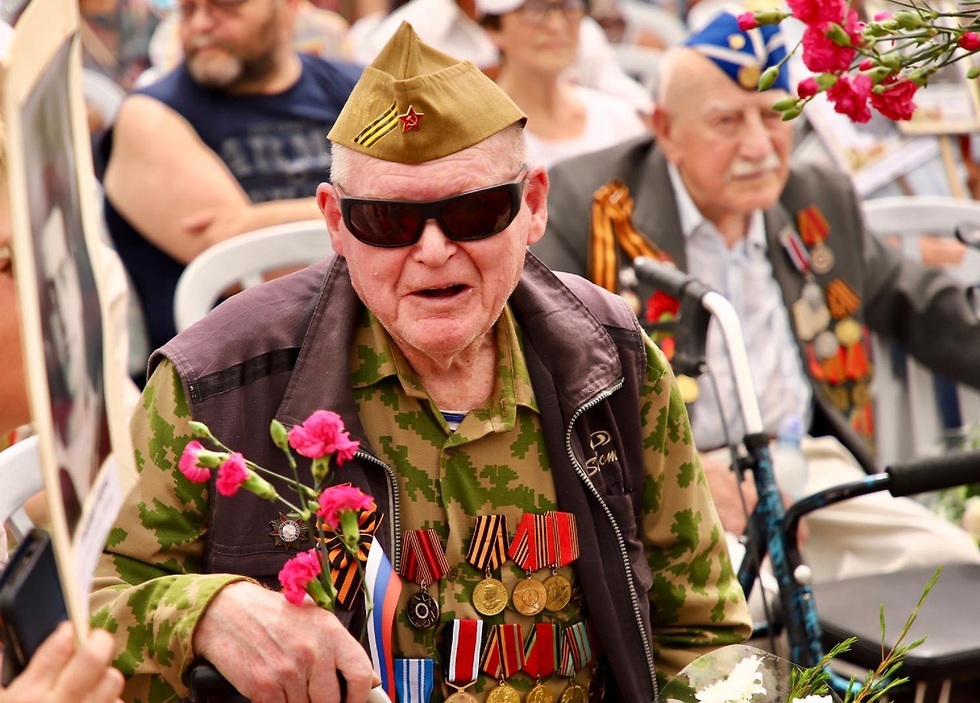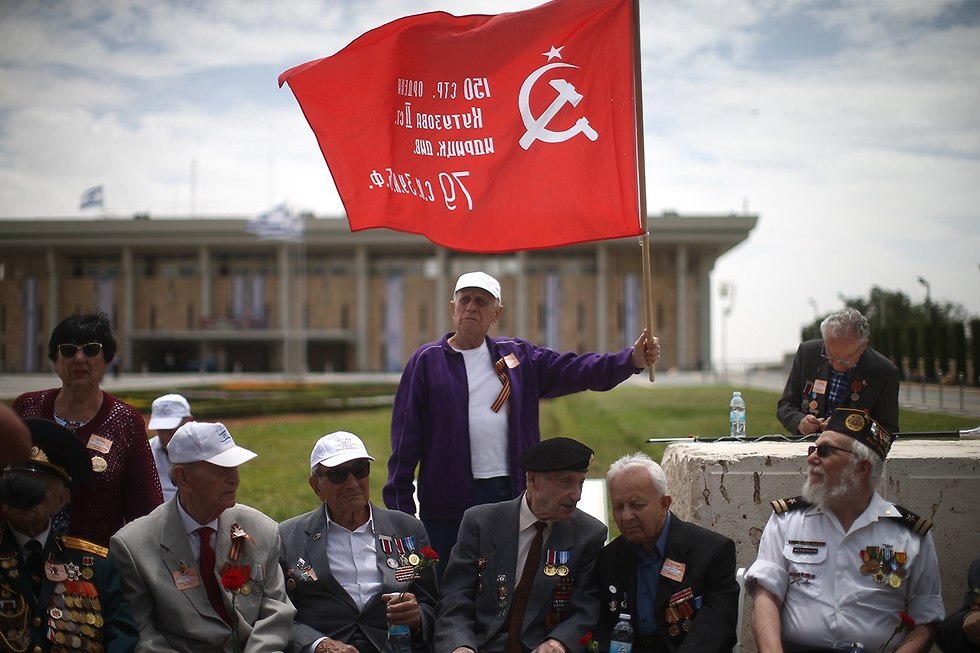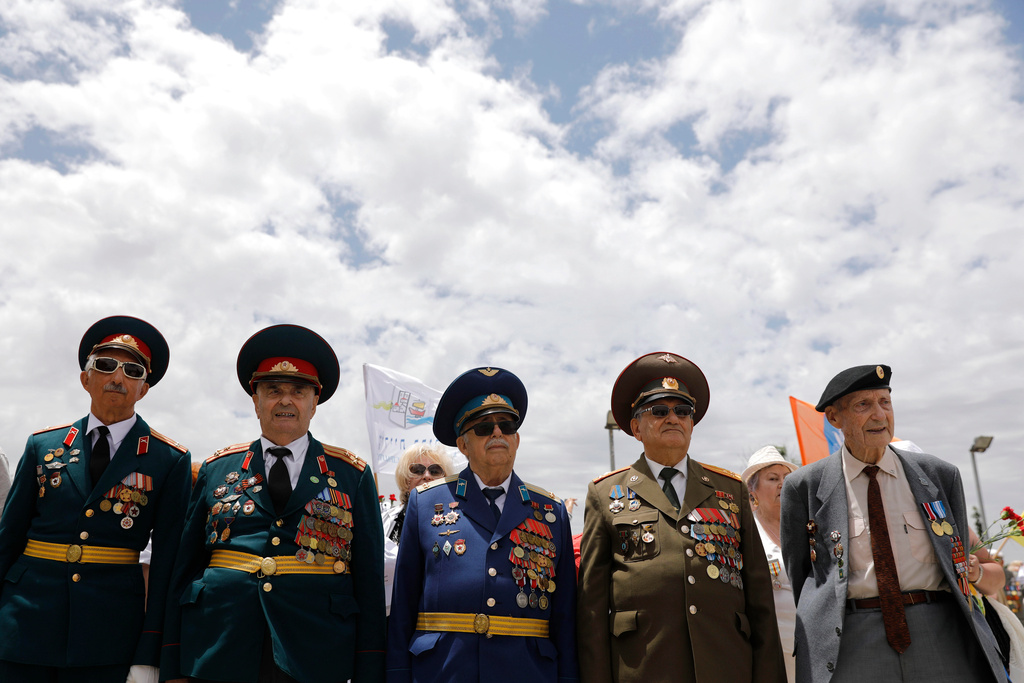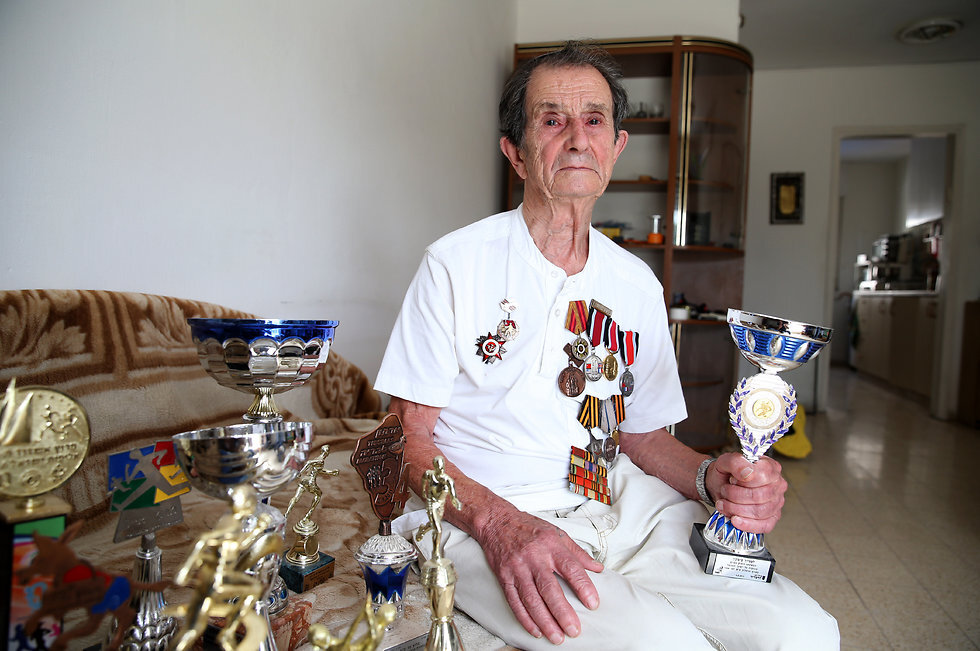Getting your Trinity Audio player ready...
On May 9, Tel Aviv-based educator Yafit Shapira planned to travel to Jerusalem with her students to march together with the city's World War Two veterans in honor of Victory Day.
Until lately, her students — among them only one native Russian speaker — did not know of the Jewish soldiers who fought against the Nazis.
In her youth, Shapira — a first-generation Israeli born to parents who migrated from the former Soviet Union — was also surprised to learn about these stories. Though she knew her grandfather was one of over 500,000 Jewish soldiers who served in the Red Army, her school mainly focused on the Holocaust, failing to mention the Jews who fought for the Soviet Union at all.
When she became a teacher, Shapira decided to change this and start a special project that brings students and veterans together.
There are currently some 2,000 veterans living in Israel, with May 9 — which was announced as an official national holiday in 2017 — carrying the utmost importance for them.
4 View gallery


World War II Red Army veteran participates at a Victory Day rally in Bat Yam
(Photo: International Fellowship of Christians and Jews)
Every year, they try to overcome the marks of time and aging, put on their medals and uniforms and partake at the various marches and events throughout Israel.
There is not one Russian speaker in Israel who does know the song which described Victory Day as "a holiday with tears in its eyes."
For the Jewish veterans, these lyrics take on a different meaning. Those tears are not only those of sorrow and loss but also of deep historic injustice.
4 View gallery


World War II veterans fly a Red Army unit banner outside of Knesset in Jerusalem
(Photo: Ohad Zwigenberg)
Soviet authorities did not only try to sequester the memory of the Holocaust, but also the bravery of its Jewish soldiers. Across the Soviet Union, the old joke goes that "Jews fought in Tashkent," far away from the frontlines, while the rest of the Red Army liberated Europe from the Nazi menace.
This discrimination and pain did not end with their arrival in Israel as the veterans discovered that the Jewish State was not too keen on telling their stories, with the country's population seeing the tradition of wearing medals and uniforms of a different nation and of a bygone age as a cultural oddity.
"We did not arrive in Israel empty-handed. We brought the truth of the 1.5 million Jews who fought the Nazis and did away with the 'Tashkent' myth with us," said 95-year-old Avraham Greenseid, head of the Israel WWII Veterans Alliance.
Several years ago, I interviewed Semion Simkin (93), then Israel's oldest veteran and marathon runner.
He recounted a story from the war, where a battalion clerk wrote down that Simkin was Russian. "Fix it, comrade. I am Jewish," he said, to which the clerk replied, "why Kike? It is preferable to be Russian."
Simkin insisted, telling the clerk that "if I die in battle tomorrow, I want to die a Jew."
Now, the Jewish state must grant the veterans their one wish — to die as soldiers who saved the world from the Nazis.



